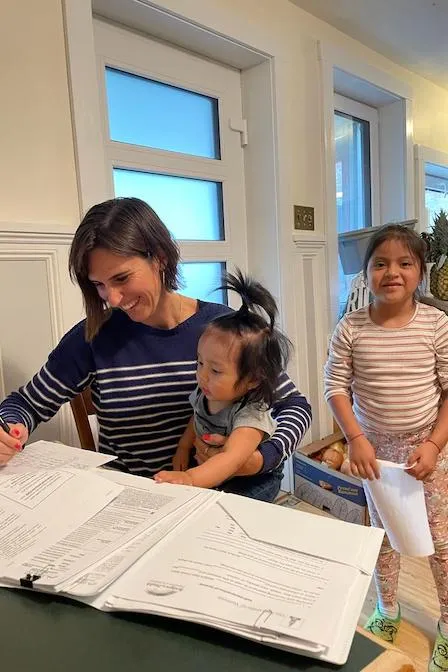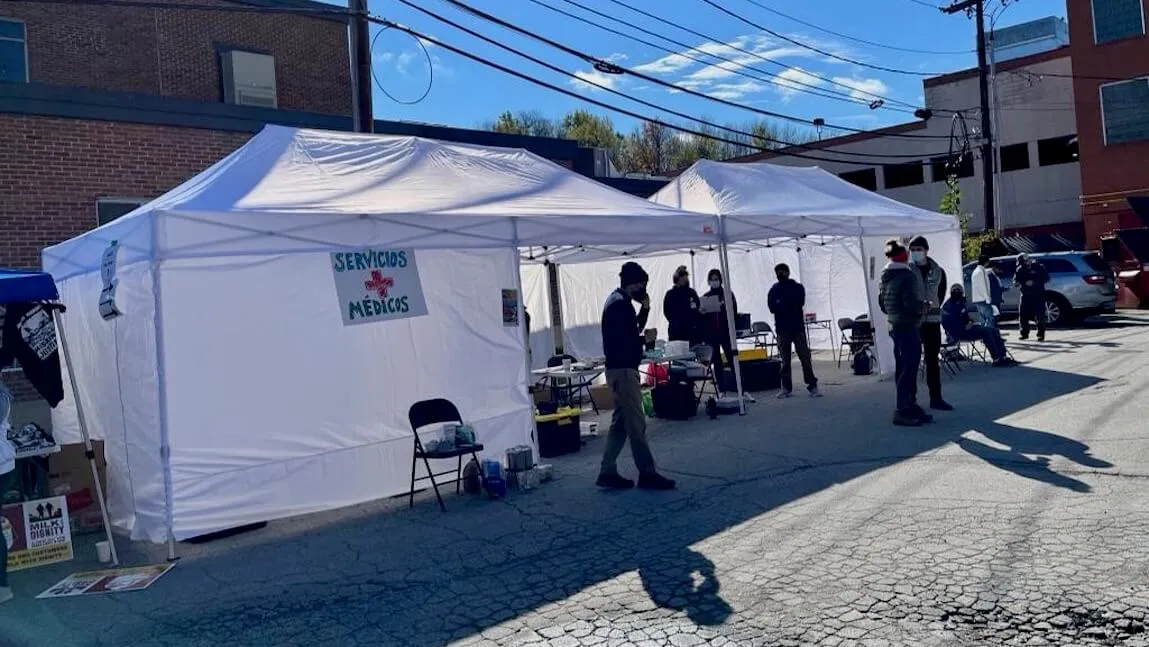Naomi Wolcott-MacCausland has been named Vermont’s 2023 Community Star by the National Organization of State Offices of Rural Health for her work leading UVM Extension’s migrant health programs. The award, announced today on National Rural Health Day, recognizes an individual in every U.S. state for their dedication and contributions to rural healthcare.
Migrant workers have long played a critical role in sustaining Vermont’s agricultural economy. Each year, many seasonal workers come to Vermont from Jamaica, and Vermont’s dairy farms have come to rely heavily on year-round migrant workers from Mexico and Central America. Yet despite their invaluable contributions to Vermont’s workforce, migrant workers face significant barriers to needed health and social services.
Through several outreach programs, Wolcott-MacCausland and a team of community health workers, student interns and community volunteers work tirelessly to help migrant workers and their families access medical services, reduce healthcare disparities, and strengthen food security. In the past two years, their caseloads have nearly quadrupled as the U.S. has experienced record levels of immigration.
“We are seeing an influx of migrants from Central and South America in Vermont. At the same time, both seasonal and year-round businesses are increasingly utilizing migrant workers to fill labor shortages in construction, landscaping, restaurants and other hospitality and service jobs.”
Meet the Bridges to Health Community Health Workers
Wolcott-MacCausland and her team are serving more non-agricultural workers than ever before. She says the growth comes with an increasing demand for services, but also presents an opportunity for Vermont.
“There's a lot of richness that comes from cultural diversity that comes with differences in language, culture and food. I think it's an opportunity both from the cultural perspective and then significantly from an economic perspective as migrant workers are filling jobs that otherwise would go unfilled,” said MacCausland in a recent interview with Across the Fence.
As it currently stands, funding for UVM Extension’s migrant health programs is tenuous. Since April of 2022, the Bridges to Health program, which employs a team of Community Health Workers, provided assistance to nearly 1,200 clients, including over 250 children, to complete health insurance applications, apply for financial assistance, receive prenatal care, manage chronic health conditions, access vaccines and more. The program was bolstered with COVID-19 emergency funds, but they are due to run out next month. A small health equity grant and a one-time appropriation within the State budget will keep the program going until June; beyond that, funding is unclear.

(Photo: Courtesy of Claire Bove)
“Extension’s migrant health initiative is funded primarily with grant dollars and is constantly in a state of flux despite its growth and impact,” said Sarah Kleinman, Director of 4-H, Family and Migrant Programs at UVM. “It’s clear that the demand for these services exist, given the high demand to fill necessary jobs with migrant workers. As our state becomes increasingly more diverse, we need to increase services that support all people. We seek to find a sustained funding source that will allow us to continue this important program and focus on supporting our workforce.”
Wolcott-MacCausland says that while long-term funding is needed, Bridges to Health has launched a giving campaign to help sustain the program in the short-term. Learn more on the UVM Foundation’s Give Campus website.
